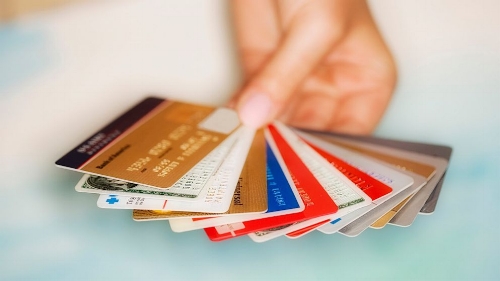
Your Next Credit Card, Smarter
The first thing you need to do is check your credit. Running a credit report is free and painless. Even if you have never had a credit card, you should check your report to make sure everything listed is accurate (what to do if your info is not accurate - https://www.creditkarma.com/article/dispute-credit-report-errors).
Knowing your credit score and everything in your credit report will help you to make a more informed decision about which credit card is right for you.
Some creditors even provide guidelines about the types of credit profiles they accept. Matching this to your credit profile increases your chances of approval and saves you time.
Once you’ve checked your credit, look into prequalified and preapproved offers. This is the money. You may have received an offer in the mail (if so, proceed with caution and check your facts to confirm this is a reputable financial institution with a reasonable offer).
Another option is if you have an existing relationship with a bank or credit union. Preapproval doesn’t guarantee you will be accepted, but it does substantially increase your odds.
If you do not have a prequalified offer, it’s time to do some research. Here are a few good places to start:
https://www.nerdwallet.com/credit-cards#
www.comparecards.com/credit-cards/best
www.CardRatings.com
Once you have found the credit card that is right for you, the next step is to apply. I recommend selecting one, maybe even two, backups in case you are not accepted on your first try.
Once you get your first credit card, it’s time to build your credit. The key to building your credit is to start responsibly. What does that mean?
- Keep your credit utilization low. This has a HUGE impact on your credit score. The optimal range is between 20-30%.
- Don’t spend more than you can afford to pay off in a month. Credit cards, particularly first time credit cards, have high interest rates and fees. So you will pay MUCH more in the long run if you overspend. It also hurts your credit if you are late or miss a payment.
- Read the fine print. This goes both ways, as often people aren’t aware of the benefits or the catches associated with their credit card. Benefits can include purchase protection to rental car insurance and catches may include penalty interest rates or forfeiting rewards for late payment.
- Wait before you apply for another credit card. There are tons of great offers out there, and it’s only getting more competitive. However, lenders look for credit responsibility. Applying for too many credit cards in a short period of time is a risky signal to lenders.
- Don’t cancel your first credit card. Another substantial factor in your credit score is your credit age. This is the average age of your accounts, so your first credit card can help raise that number as you apply for cards in the future.
This may seem difficult starting out or be a lot to take in. However, making the right decisions now will really pay off in the future.
When you want to purchase a car, own a home, or open your own business, you’ll be glad you did it right the first time and took steps to set yourself up for success.
© Copyrights by Lawless Balance. All Rights Reserved.